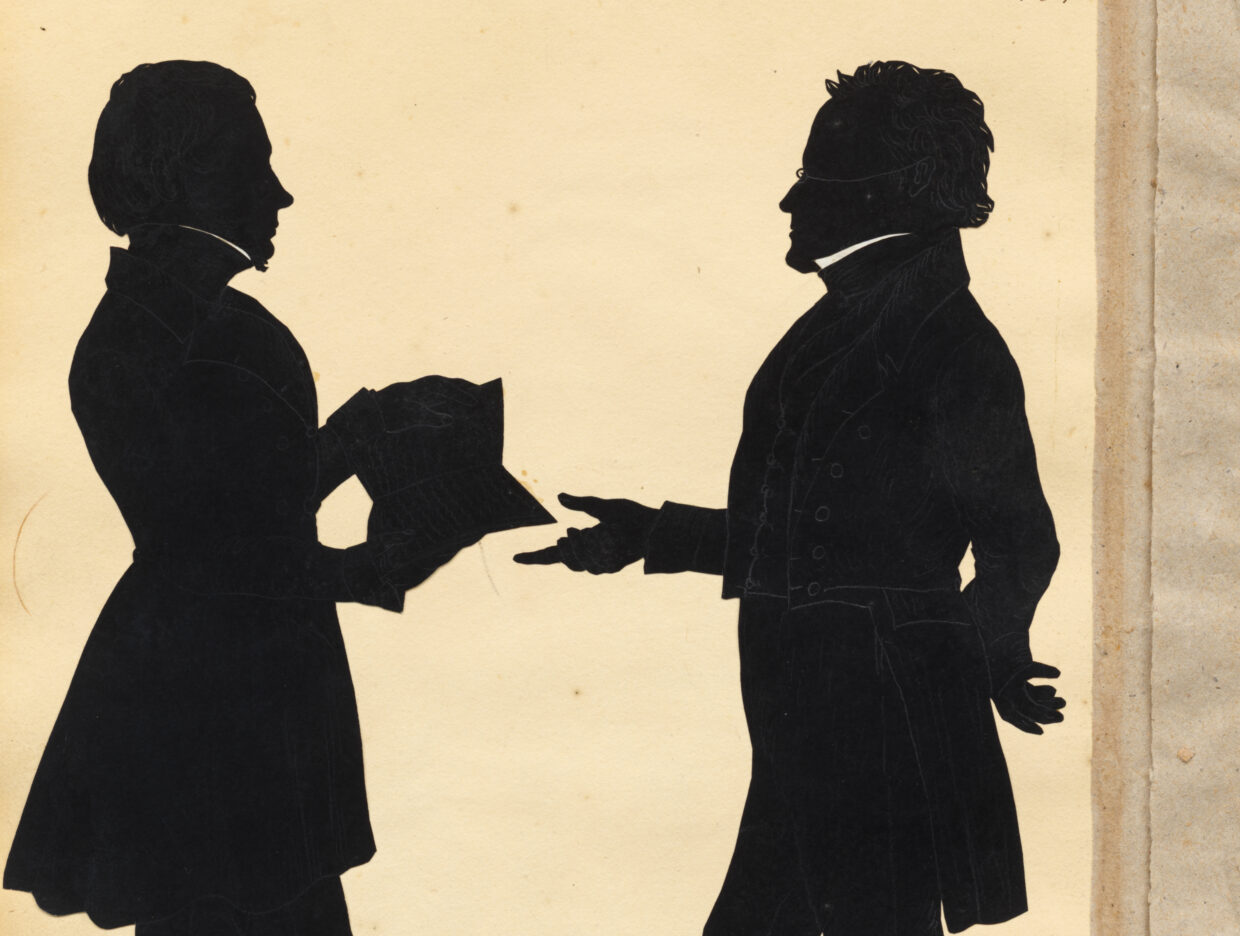What is the point of the author interview?
This weekend, inspired by a rewatch of James L. Brooks’ 1987 masterpiece Broadcast News, I got to thinking about the art (and point) of the interview. Especially here, on our little island called the literary world.
There’s a real and historical abundance of author tête-à-têtes in these streets. On the one hand, we have The New York Times’ weekly “By the Book” column, in which authors with upcoming pub dates answer softballs like, “what’s on your nightstand?” Accompanied by a benevolent illustration of the subject, this Q&A typically radiates positivity. Writers extol their peers, and routinely shy away from the single sneaky question. (“Disappointing, overrated, just not good: What book did you feel you were supposed to like, and didn’t?”)
On the pithier side, there’s the Proust Questionnaire, a broad, biting script popularized in Graydon Carter’s Vanity Fair but based on a dinner party game Marcel himself enjoyed. With questions like, “on what occasions do you lie?” the PQ functions diagnostically; it calls to mind, for me, one of Heather’s lunchtime polls. As with “By the Book,” PQ participants are rewarded with a portrait. But the Vanity Fair house style renders subjects in modish angular lines, where the Times sends everyone off in soft pastel. This indicates a spiritual difference. If “By the Book” conjures an image of a sated, mid-career writer rereading the classics in a hammock, probably in coastal New England, then the PQ conjures a cocktail party in mid-century Manhattan. That’s you in the corner of Monkey Bar, swirling martini dregs and getting real with—let’s say—Tom Wolfe.
On perhaps the meatiest end of the interview spectrum, The Paris Review has been publishing their trademark “Art of Fiction,” conversations since 1953. Critics have praised the form of these somewhat Socratic dialogues. And a very small corner of the internet goes berserk whenever one of the classics—like this one, from James Baldwin—is lobbed over the paywall. The “Art-of…” series can even function as a teaching tool. I’ve encountered Review chats on syllabi.
The proliferation and endurance of the author interview is especially curious to me given that writers are supposed to be introverts, as difficult to coax into light as Villeneuve’s Beast. (That’s a cliche, of course. But I think it’s fair to say the writer is not inherently more charismatic than any other kind of person, in an interview setting.) Why then is the form so hardy? And apparently compelling, in both canape and full meal form?
Or, better put: What do we really want from an author interview?
*
Perhaps this last is a question best explored in negative space. For I know off the dome what I don’t want: slavering. Interviews that function too openly as publicity tools can leave this reader unsatisfied and suspicious. Certain cookie cutter “By the Book” questions, for instance, strike me as useless in their generality. (“Do you like a book that engages you intellectually or emotionally?” Shocking, news at eleven, most people like both.)
On the flip side, I don’t want too much from an interviewer. Anyone who listens to podcasts will be familiar with the hectic, over-eager host, prone to interruption and “this is more of a comment”s. Even if it’s born of enthusiasm, if the interviewer is too loud in the mix, I’ll tap out. Who even are you, I find myself thinking. Nobody asked who you’d invite to the hypothetical dinner party, random editor.
This grousing would suggest I go to an author interview for an obvious-looking reason: to hear from an author in their own, specific words. But this too is unsatisfying, suspicious.
For if their own words were all I wanted, wouldn’t I just read the author’s book?
*
The late Janet Malcolm spoke of the “moral problem of journalism,” and made the case that interviewing was inherently unkind. I’ve feared the truthiness of this argument as much as I’ve admired its frankness. And here’s the part where I admit that there is a measure of scrutiny-verging-on-schadenfreude that I, Brittany, take to interviews. I do not want a puff piece, with its broad and reverent inquiries re: Inspiration. In conversation, which is to say in conflict, I hope to glimpse something more of a person than they’ve elected to show me; I want what is under the words the author has already granted me (edited) access to. I want to peep the well that feeds the work.
To this end, my favorite interviews are slightly…spicy. But contra to Malcolm, I do not think they are inherently unkind. Take Isaac Chotiner’s 2019 New Yorker interview with the (elder…) enfant terrible author, Bret Easton Ellis.
When it was published, some people called this chat an evisceration—if a well-deserved one. But on reread I find it more exacting than antagonistic. Chotiner arrives with a clear and informed point of view. He grants Ellis multiple chances to clarify or defend his several contradictory claims. And Ellis very much hoists himself on his own petard, tossing off bullish, evasive responses. This interview is fun to read because, yes, it cuts a self-styled truth-teller down to size—but it also functions as useful context for would-be buyers of the book. If an author can’t explain the ideas he purports to be exploring in a collection, reason runs: perhaps that collection is not well-baked enough to enter my house.
For a more recent example of this tough-but-fair affect, I look to The Paris Review. Last weekabouts, Sheila Heti interviewed Lauren Oyler in a gracious, lively conversation centered around the latter’s new essay collection. Much was made (in some circles) of Heti asking Oyler about her apparently unscrupulous research methods. Yet the exchange doesn’t read like a trap. As in the Chotiner/Ellis interview, the hard question is grounded in a close read of The Work, and Oyler is given ample time to answer it. One can infer what they will from her response.
I think the result, in both these cases, is a glimpse of The Work that is somehow clearer than the (much-circulated, sometimes unkind) reviews of the books themselves. For in their own words, we get a sense of the author’s true interests. The wells being tapped, and the wells running dry.
*
Another reason I go to author interviews? Nebulous spiritual guidance. As a writer myself, I want hacks. What does this person know that I don’t yet? What can I learn from their process, or steal from their nightstands?
I recognize something eerie in this approach, which anoints authors gurus and turns every tossed off piece of advice into a meme-able koan. But on the flip side, it can be motivating to think of writing as a spiritual enterprise. The “muse” as concept is way sexier than the daily dudgeon of moving commas around. Just as swirling martinis with the New Journalists—in my mind, anyway—is a pleasant carrot to type toward. Sure, I smell something rotten in this elevation of the writing lifestyle over the work of writing. But it’s also true that whenever writing is spun as a glamorous pursuit, it does become easier to do. (I’m sorry; I don’t make the rules.)
Perhaps to admit as much is to admit I’ve fallen into the publicist’s trap. Which brings us back to the gist: what is the author interview for? Whether puffy or incisive, does the Q&A necessarily contribute to the rude deification of the author? Or—if Malcolm is right and I’m just a jerk in denial—her rude destruction?
It’s a classic Tuesday morning double-bind.
I’ll leave you with some positive space. Claudia Tate’s recently reissued collection, Black Women Writers at Work, contains a goldmine of deep, unflinching conversations. Featuring interviews with writers like Toni Cade Bambara, Gayl Jones, and Toni Morrison, this collection is fine reading for well-wishers and guru-seekers alike.
It’s nice to hear these authors explain how they “did it.” Not least because they did it so well. Makes me feel like I could, too, someday.





